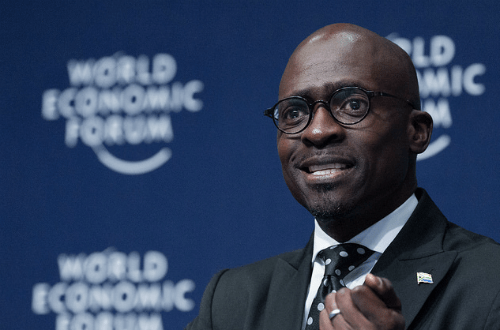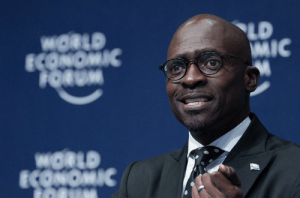South African Finance Minister Malusi Gigaba on Thursday said the South African economy had failed to create a sufficient number of black entrepreneurs and industrialists to reflect the proportion of black people in the population.
Gigaba told delegates at a Brand South Africa Thought Leadership meeting on the sidelines of the World Economic Forum Africa meetings in Durban that at the heart of the inclusive growth narrative being punted by government were interventions aimed at significantly changing the structure of the South African economy.
This would be achieved through industrialisation and ownership, developing township and rural economies through productive economic activities and bringing government services closer to these areas.
“Whereas the share equity schemes have played their role in the past 23 years to create a vast consumerist black middle class, it could not achieve the goal of changing property ownership patterns and creating a vast corps of real black entrepreneurs and industrialists.”
Gigaba said he wished to be bold and say that “during the past two decades we have created very few genuine black entrepreneurs and industrialists in proportion to the black population in our country”.
“The successful pursuit of the above would ensure that we grow the economy in an inclusive manner so that we expand our revenue base and continue to use the fiscus in a redistributive manner to invest in growing our human capital,” he said.
He added that this would be achieved “through social expenditure, expanding economic investments and accelerating micro reforms”.
Gigaba said he firmly believed that the role of the National Treasury “is not to fixate with managing a fiscus that is not growing, but we must play the role of spearheading inclusive growth”. (via African News Agency)
Social Entrepreneurs Honoured at WEF Africa 2017
The World Economic Forum on Africa on Thursday honored three social entrepreneurs which the organisation said had helped to reduce poverty on the continent.
At a ceremony held at the Durban International Convention Centre, chairperson and co-founder of the Schwab Foundation for Social Entrepreneurship, Hilde Schwab, handed out awards to Sonkita Conteh, Keller Rinaudo and Dale Lewis.
Schwab said: “Poverty remains high on the agenda and all the social entrepreneurs step in to fill the gaps in service delivery and social programmes to low income communities. They do this through their innovative business models in areas such as health, breaches in technology and financial services.”
Award recipient, Sonkita Conteh was honoured for his organisation, Namati, in Sierra Leone that trains and supports local paralegals to assist millions of people worldwide that live outside the reach of legal assistance. Conteh has helped over fifty thousand people in eight countries.
Keller Rinaudo was honoured for his project, Zipline, which entailed drones delivering medicine to rural areas in Rwanda.
The drones negate the need for lengthy road trips or expensive airplane deliveries and are to fly at 100 kilometres per hour, before dropping the parcel of medicine at a dedicated drop-off point using a small parachute. His idea has helped 20 hospitals and health centres.
Fellow award winner, Dale Lewis, has an organisation in Zambia called Comaco which has eradicated poaching by educating farmers and giving them access to premium markets.
Comaco has registered 140,000 farmers to commit themselves to conservation farming and wildlife preservation.
Education Sector Presents Opportunities in Africa – Report
There is an opportunity for $16 — $18 billion of private investment in education in sub-Saharan Africa in the next five years. This is according to a report by investment and advisory firm Caerus Capital.
“The Business of Education in Africa” was launched at WEF. Their research reveals that 21% of African children and young people are already being educated in private institutions, with this figure set to rise to one in four by 2021.
The report argues that in order to meet the education needs of their rapidly-growing populations, African governments will need to harness the private sector.
The report explores the education landscape for sub-Saharan Africa (SSA) and finds that despite significant gains, 30 million children in SSA still have no access to any form of schooling.
The region has both the fastest growing and youngest population in the world, and by 2035, the number of Africans joining the working age population (15–64) will exceed that of the rest of the world combined. Around one billion children will need to be educated over the coming three decades. Without dramatic changes to its education systems, SSA will fail to reach its potential as an engine of global growth and will be a drag on the global economy.
Investors — including traditional investors like education businesses and private equity firms, as well as social impact investors — have the ability to harness the $16–$18 billion investment opportunity over the next five years. $1.5–$2.0 billion of this — or up to $400 million per year — is expected to be in the formal, organized sector and addressable by traditional investors.







